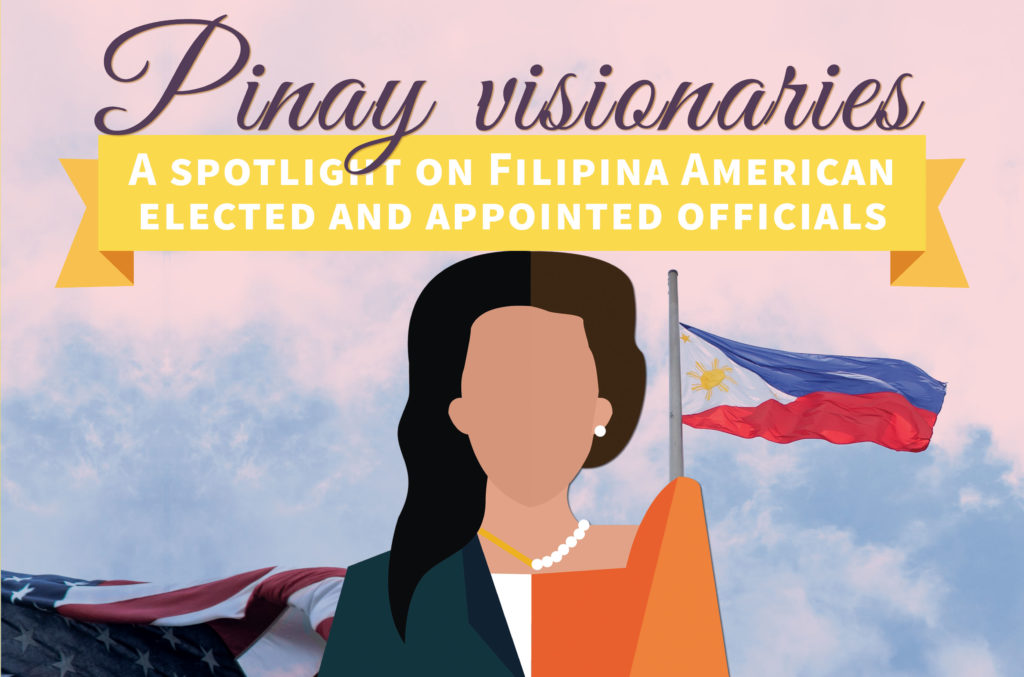 Interviews by Malou Liwanag-Bledsoe, Joseph Peralta and Christina M. Oriel /AJPress
Interviews by Malou Liwanag-Bledsoe, Joseph Peralta and Christina M. Oriel /AJPress
THE late Thelma Buchholdt paved the way for Filipino Americans to serve in public office, when she was elected to the Alaska House of Representatives in 1974, becoming the first Fil-Am woman legislator in America. She served four terms until 1980.
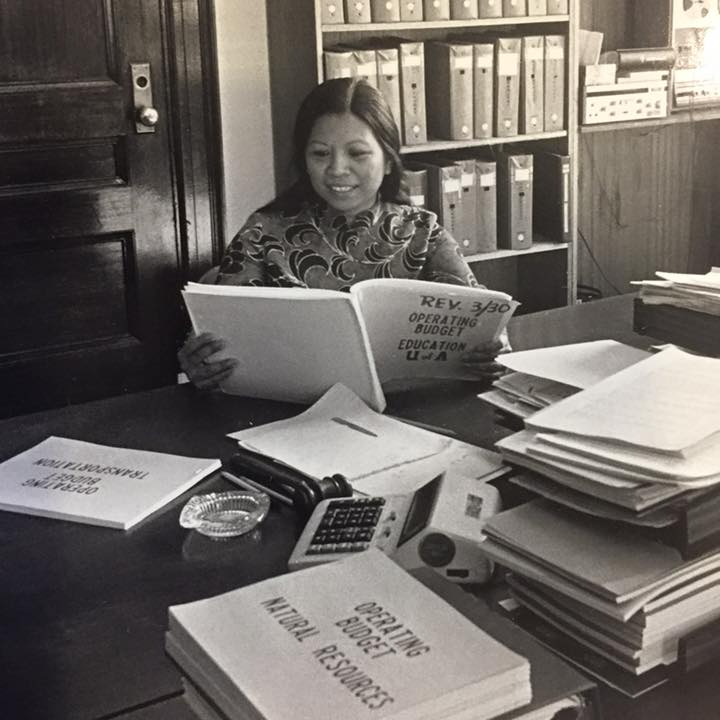
Photo courtesy of the Filipino American National Historical Society
Since then, Filipina American women have occupied statewide or local positions, whether through elections or appointments, in states like California, New York and Nevada, to name a few.
In a large city like New York, for example, Mayor Bill De Blasio has appointed a record number of Filipina Americans as commissioners: Anne del Castillo, Office of Media and Entertainment; Carmelyn Malalis, Commission on Human Rights; Maria Torres Springer, Department of Housing Preservation and Development; and Minerva Tantoco, the city’s first Chief Technology Officer. (Torres Springer and Tantoco have since vacated the roles, however.)
In the 2018 midterm election cycle, three Filipina Americans vied for congressional seats: Gina Ortiz Jones in Texas’ 23rd Congressional District (she’s since announced she’s running again in 2020); Cristina Osmeña for California’s 14th District; and Jennifer Mijares-Zimmerman for Florida’s 1st District. While we have yet to see Filipina American representation in Congress, it’s a start for individuals to have the backing and support to run on that level.
This year’s Filipino American History Month theme of “Pinay Visionaries: Celebrating Filipina American Women,” recognizes the vital but underreported role of Fil-Ams in U.S. history, especially their work in public office.
The Asian Journal spoke to several current Filipina Americans who have been elected or appointed to public offices about their contributions and what needs to be done for more Pinays in these types of leadership roles.
SOUTHERN CALIFORNIA
In Los Angeles, Mayor Eric Garcetti — who has often said that LA is a “very Filipino city” — has Fil-Ams across levels of his administration and has made an effort in ensuring that the city no longer has any all-male commissions.
Filipina Americans have been reflected in this goal through commission and advisory appointments: Joselyn Geaga-Rosenthal, Department of Building and Safety; Melany de la Cruz-Viesca, Human Relations; Pilar Diaz, Department of Recreation and Parks; Theresa de Vera, Department on Disability; Myrna Cabanban, Department on Disability; Gerlie Collado, El Pueblo de Los Angeles Historical Monument Authority; Abigail Zelenski, Civil and Human Rights; and Ethel Rubio, Adams-Normandie Historic Preservation Overlay Zone advisory board.
This year alone, Garcetti has appointed two Filipina Americans to prominent city commissions: Susana Reyes to the LA Board of Water and Power and Jessica Caloza to the Board of Public Works — both becoming the first Pinays in these roles.
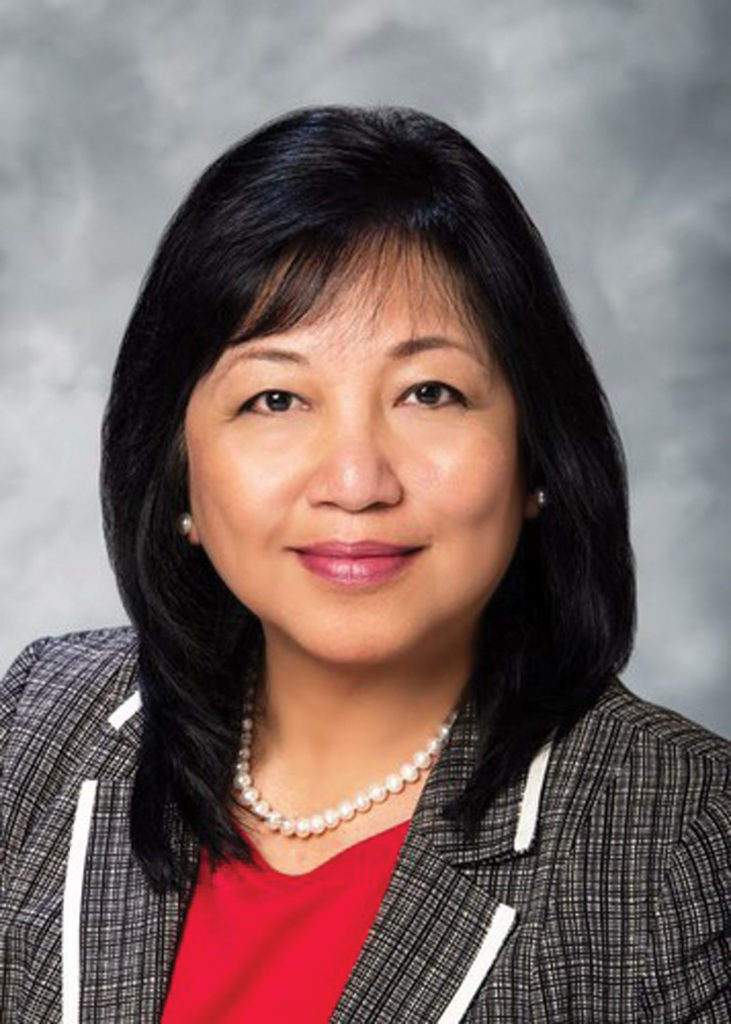
Susana Reyes – Commissioner, LA Board of Water and Power
Reyes announced her retirement from a 32-year public service career earlier this year, until she was nominated by Garcetti in April to join the LA Board of Water and Power Commission, the largest municipal utility in the country. Reyes was previously the director of LA Dept. of Water and Power’s Low-Income Customer Access and was a senior analyst on Garcetti’s sustainability team. Outside of City Hall, Reyes is vice president of the national Sierra Club’s board of directors.
On what it means to be a commissioner: Done right, this role can be powerful. I take my duties seriously and as a steward of the communities that LADWP serves, I know I can make a difference from where I sit. I painstakingly ensure policies reflect the values of the organization by working closely with the organization leadership and public stakeholders like neighborhood councils, community-based organizations, environmental justice advocates, and businesses that promote clean energy and sustainable programs. Being a commissioner requires continuous learning about governance and being an advocate for the mission, making decisions that are in the best interest of the organization, ensuring prudent use of the organization’s assets, and planning for a sustainable future.
On being an environmental and social justice advocate: Growing up in the Philippines, I’ve seen firsthand the poverty and inequality in communities that are most impacted by climate change. I was aware of the lack of leadership and corrupt moral compass at many levels of our government. So I took action. I’m reminded of growing up in the Philippines and experiencing water shutoffs and power outages on a regular basis. I’m reminded of the contamination in the drinking water and the worst air pollution episodes one can imagine.
These experiences gave me the courage and the competency to look at our world through a different lens, and maybe, even, to polish the view for others, especially for my grandchildren who will have to deal with the climate crisis. My public service and career is a continuation of my commitment to make a difference where I can most meaningfully serve. I don’t distinguish my passion from my career. To me, they are inherently connected and woven in the fabric of my being.
On accountability: I would like the public to see me in my various leadership roles and hold me accountable for my work. I have an open-door policy and I welcome feedback and ideas that are transformative and meaningful. The Fil-Am community can engage with my office in an open and transparent manner. Our ‘kababayans’ can bring to my attention their concerns or ask me for input, comment on my work, or involve me in working groups and panels on particular issues. Effective communications help build trust and a sustainable relationship over the years.
On Pinay power: As a Filipina, I take pride in my race, my roots, values, and culture. Being a Filipina means having a unique and authentic voice that lifts up voices of our kababayans. It means having the strength to rise above complex challenges as a strong advocate and leader of social change. I see my role as a disrupter to systemic injustice and racism. I have the power to make a difference simply by showing up and telling the truth, by giving a voice to that which burns fiercely inside my heart.
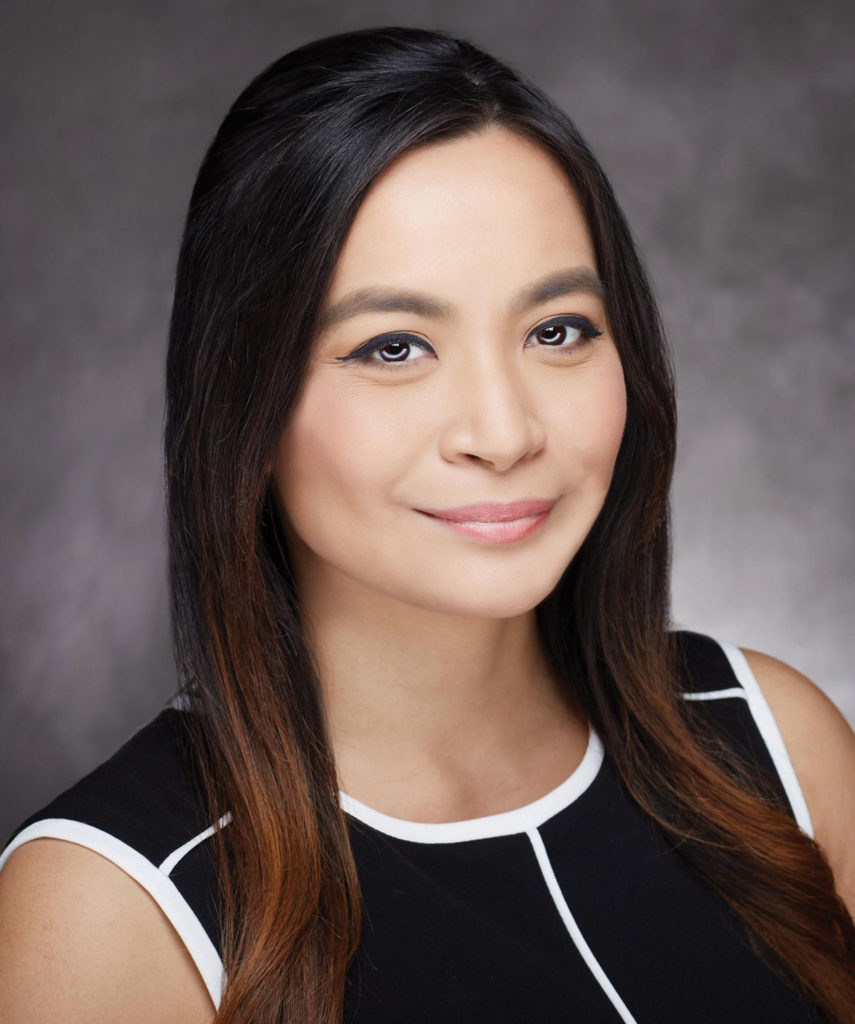
Jessica Caloza – Commissioner, LA Board of Public Works
In addition to being the first Pinay, Caloza is currently the only Asian American on LA’s Board of Public Works, a full-time, five-member commission that manages projects and programs, such as construction and sanitation, to the benefit of the city’s 4 million residents. Caloza oversees the Bureau of Engineering, which deals with infrastructure.
On the call to public service: I was a senior at UC San Diego and I got terribly sick. I was working multiple jobs, had internships, and was taking a full course load and I ended up getting a bad case of pneumonia and [being] hospitalized. The Affordable Care Act was passed a few months before that…and if I wasn’t covered under my insurance plan by my parents, I would have had crushing medical debt. This experience was just so formative…and made me think if I got out of [there], I had to make sure policies like this continue to exist for people who need it the most, for people that really need to be protected by our government. That’s why for me our work is so important because sometimes it’s a matter of life and death.
On the impact of local government: One of the things I grappled with the most at the federal level is that you have a hard time grasping what the real issues are that constituents face because D.C. is a bubble…and you lose a lot of what is important to the everyday person. That’s what I love about working on the local level, I will never not know what the problem is in LA. The Board of Public Works is the only full-time policymaking commission in the city, and we handle a lot of the critical city services and also the city’s infrastructure projects that hit close to home because we impact people’s quality of life.
On memorializing Pinays: I hope we institutionalize these Filipina trailblazers when we write in our newspapers, articles and books. When I was looking for these Filipina trailblazers in history, it was really hard to find them in Filipino American history because it is very male-dominated. We just have to keep sharing these stories…until they become part of our history because repetition is everything when it comes to who we remember, whether it’s Dawn [Mabalon] or the one I’m trying to institutionalize in our Filipina history here in LA is somebody like Tita Jocelyn Gaega Rosenthal who is a remarkable community leader and advocate.
On representation: Being Filipina is something that I always represent, whether it’s in this role as a commissioner or whether I’m out on my own time. I like to let people know that there are not as many Filipinas in leadership positions and that it is so important for us to identify ourselves where there are some. You could be in the highest position in an organization, but if nobody knows that you’re Filipina, or it’s not something you’re proud of and share with people, then it’s like it doesn’t exist and it isn’t part of your identity. Half of it is telling people and being proud to be Filipina and creating that awareness and having that conversation. Once you identify yourself and see that you’re the only Filipina or Filipino at the table, it really does open up a discussion about diversity and inclusion and who’s at the table and gets to make decisions.
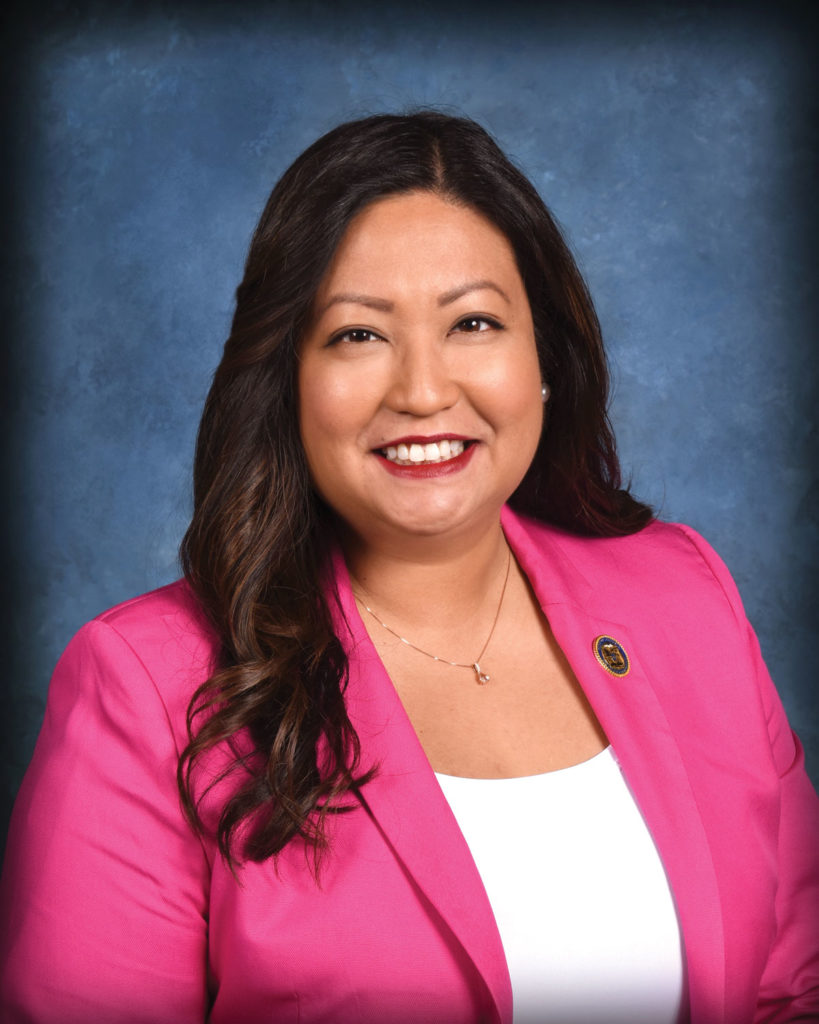
Melissa Ramoso – Councilmember, City of Artesia
In 2018, Ramoso became the only woman on the Artesia City Council, a city that is home to numerous ethnic enclaves, including the Fil-Am community which makes up the majority of its Asian population. Apart from her council duties, Ramoso is district director for state Assemblymember Al Muratsuchi and state chair of the California Democratic Party’s Asian Pacific Islander Caucus.
On rising up: I never dreamed of running for office. It wasn’t until one day as a young legislative staffer, the seed was planted by a long-time community leader in the Asian Pacific Islander community (who is no longer with us) that I could achieve more. I thought to myself, “if others believe I can do it – why couldn’t I?”
The need for Asian Pacific Islanders, and most especially Filipino Americans, to step out of the legislative staffer role and into an elected role is so great. Many people I look up to in the community are those who are in politics. Many are hesitant to step up and into the role, so I just had to do it to ensure that my community would have a seat at the decision-making table. With my most recent election and second time running, there were no women running, so it was even more meaningful that a female voice was accounted for.
On her balancing act: I have a unique situation – I run a state office as a district director for a state Assemblymember, and am a councilmember for the City of Artesia, and a California Democratic Party State Leader as state chair of the Asian Pacific Islander Caucus. I am constantly wearing these three hats, but I truly believe in sticking to the rules of not crossing over my responsibilities. During my 9 a.m.-5 p.m., I am on state legislative time. On my breaks and lunches, I put on my other hats. There is no typical day from me. I can go from staffing my boss to cutting a ribbon at a Jollibee in Artesia or spending my weekend studying my Council agenda. I am constantly responding to constituents in my work life that it is almost the same in my City Council life. It takes incredible organization, time and dedication to balance it all.
On Filipina strengths: A Filipina is a version of your Lola, your Nanay, your Tita, your Ate and more. I hope to be the best version of all these powerful, strong, independent and incredible women in my life. They all have shaped me to be who I am today. What I have learned from them and other Filipinas I admire is how I have been able to define myself today.
On passing the torch: We must support each other, empower each other, respect each other in what we are trying to achieve as individuals and as a community. It is extremely important to make sure you include others in your greater community outreach. In my eyes, it has never been about me. It has always been about my community and that has always fueled me to do more. I make it a point to reach out to those who want to learn and have the potential to do amazing things. My mentors have done this for me, and I hope to continue it with others. Also, I will always be me and am still getting used to my newfound title as Councilmember or Honorable. I know it has taken many generations of Filipino American leaders to get to this point of having more Filipinas in elected office, so I do wear my title with pride and will always make sure I am not the last to do it.
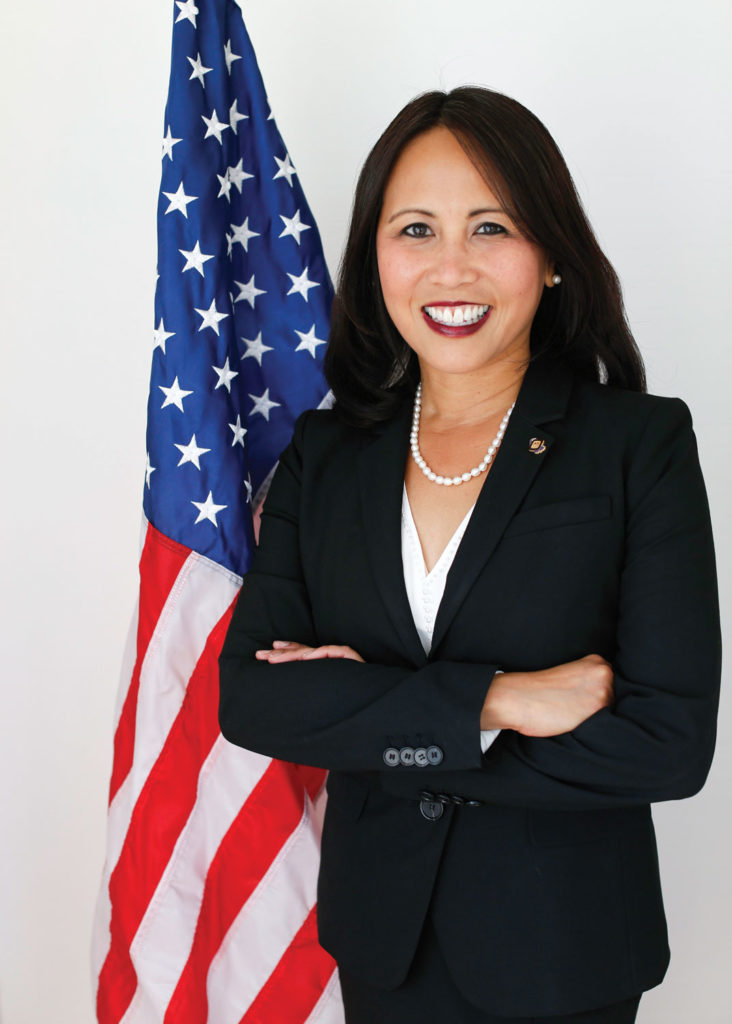
Rachelle Arizmendi – Councilmember, City of Sierra Madre
Arizmendi has served on the City Council for Sierra Madre since 2014, a city in the foothills of the San Gabriel Valley that bears a population of a little over 11,000 residents. In 2017, she was selected to serve as the mayor of the city and is currently a councilmember after being re-elected in 2018. By day, Arizmendi is the vice president and chief operating officer of Pacific Asian Consortium in Employment (PACE), a non-profit community development organization that provides job training and employment opportunities.
On running for office: Running for office was not a consideration in my adult life. I simply became more involved in my community when my husband, dog, and I settled into our new home in a city where I knew no one. I thought joining the Community Services Commission would be a perfect place to meet new people and volunteer my talent. As I became more involved in the community, I was compelled to fight for the qualities of the little village I fell in love with — that were possibly being challenged.
On owning Filipina-ness: When I was 17 years old, I was “crowned” Miss Maria Clara. Initially, I did not fully embrace the meaning of it. Some may contend that what her character symbolized were characteristics contrary to a strong Filipina woman. But as an American-born Filipina, I learned to carry the title graciously. It was a title where I proudly accepted my Filipino roots and stopped trying so hard to “just” being American. Most importantly, being Filipina means to me pride in my culture, appreciation of where my parents were born and raised, understanding that family extends well beyond first cousins and parents siblings….warmth in how we welcome people into our home, generosity in the sharing of our food, and the sense that we are in a secret society to others who may be strangers but share the commonality of being Filipino (‘Filipino-Ka?’). ‘Filipina’ to me is also being a strong woman, while respecting others; knowing when to use honey instead of vinegar; and understanding how we have power that can be used for good.
NORTHERN CALIFORNIA
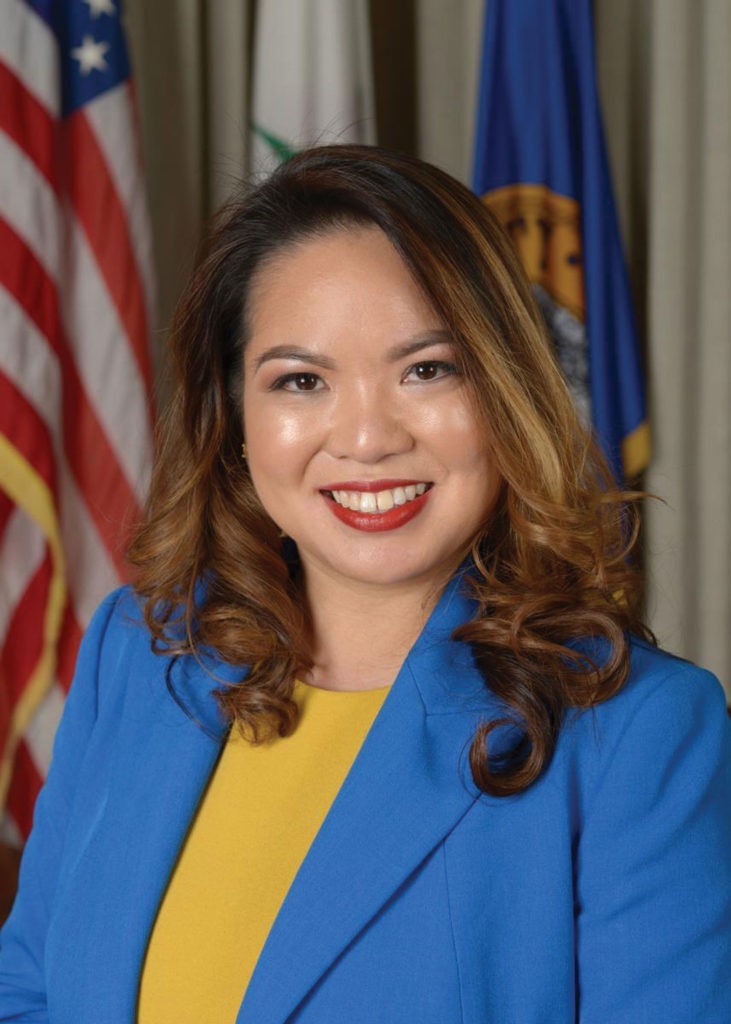
Juslyn Manalo, Councilmember, Daly City, CA
Young as she is, Daly City Councilmember Manalo is no stranger to public service. In 2016, she was the first-ever Filipina American elected to the city council’s 106-year history. During her first year in the council, she served as vice mayor. She was voted as Mayor in 2017 by the council and city officials.
On creating a pipeline for the younger generation: I think we need to create a pipeline for more younger women to understand that it is necessary for our community to have representation. Let’s have more mentorship opportunities for younger women. I also say to young people, feel free to reach out to me.
On the female myth: There continues to be the underlying myth that you cannot be in leadership roles and have a family, I have experienced that even today. We are in 2019, allow women to be who they are. Do not silo us into one role. We are dimensional. Look at House Leader Pelosi.
On paying tribute: Filipina means to me is a great honor to be part of a culture that dates back to leadership with the Baybaylans and we were in a matriarchal society. With this year’s Fil-Am History Month theme celebrating Pinay Visionaries, we must honor those who have contributed to our community and to U.S. society because we have been able to influence, create, lead and empower in so many facets and sectors. It is time to celebrate and give tribute to these women.
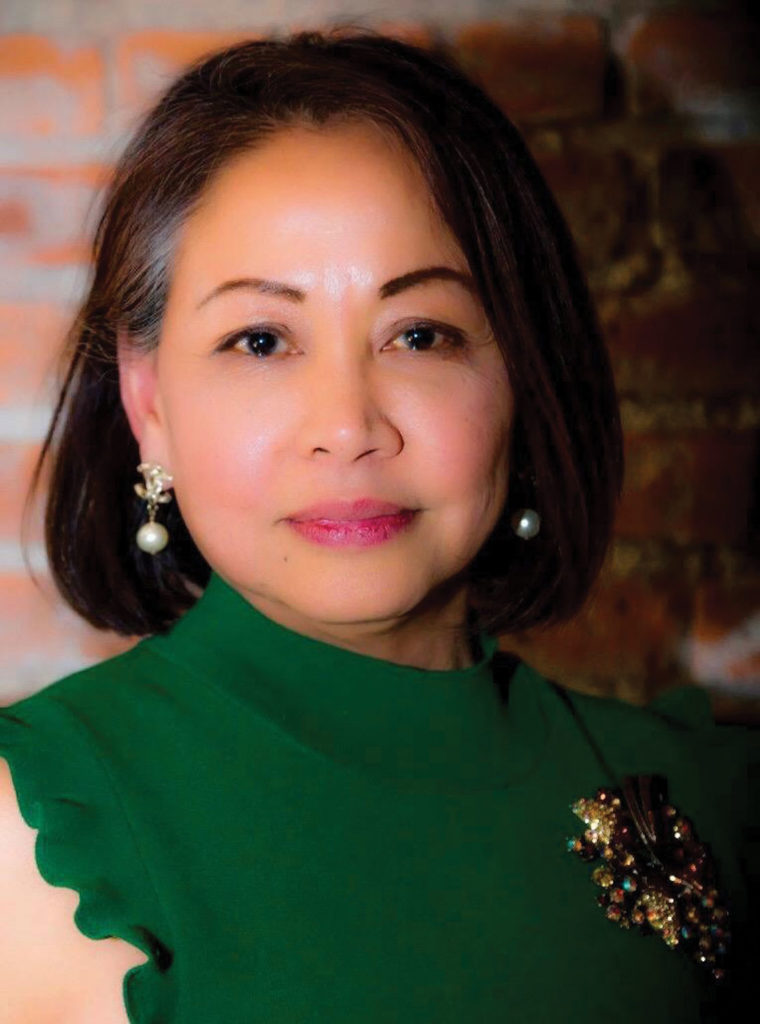
Sonia Delen – Member, the State Bar of California Board of Trustees
Delen’s passion for community and public service has been shaped since her childhood days in a barrio in Batangas City, where her family home was like a community center open for those who needed help. In addition to being a senior vice president at Bank of America’s leasing division, Delen is currently a member of the Board of Trustees with the State Bar of California (2018-2021), having been appointed by then California Governor Jerry Brown. In 2016, she was initially appointed by Gov. Brown to the Board of Trustees for the Health Professions Education Foundation (HPEF), but resigned from HPEF after her appointment to the State Bar of California Board of Trustees.
On bringing perspective: As a non-lawyer, public member of the Board of Trustees of The State Bar of California, Delen brings a lay person’s view of the legal profession as an engine for a just society. “I represent consumers, the public in general and the under-represented, which adds to the diversity of law professionals and levels the playing field for legal representation of all citizens.”
On community building: We must continue to elevate, lift and encourage one another. Filipinos are known to be some of the best workers and leaders in the world; we have the skills, character and attitude. We need to show the world how effective we are as individuals, how we use culture to our advantage, and how we celebrate diversity to build collaborations.
It is a civic duty of anyone to give more, share more. I mean there are a lot of avenues for someone to be involved in something, whether you financially support a starting Filipina social entrepreneur, mentor young women about her career choices, give time for a weekend volunteer event, support grassroots campaigns, look for sponsors or share an advocacy page poster in social media. There’s always something to do for the betterment of this world.
On a united front: We need to be united. As Filipinos and as one nation, we need to show that we can use our economic power/ buying power. We need to insist that we have a voice, that we must be heard and that we are a strong community. These narratives impact and empower people, making ripples of change that influence the minds and inspire people to dream and make a difference in the world. Be it climate change, government policy, politics or nonprofit advocacies, let your voice be heard.
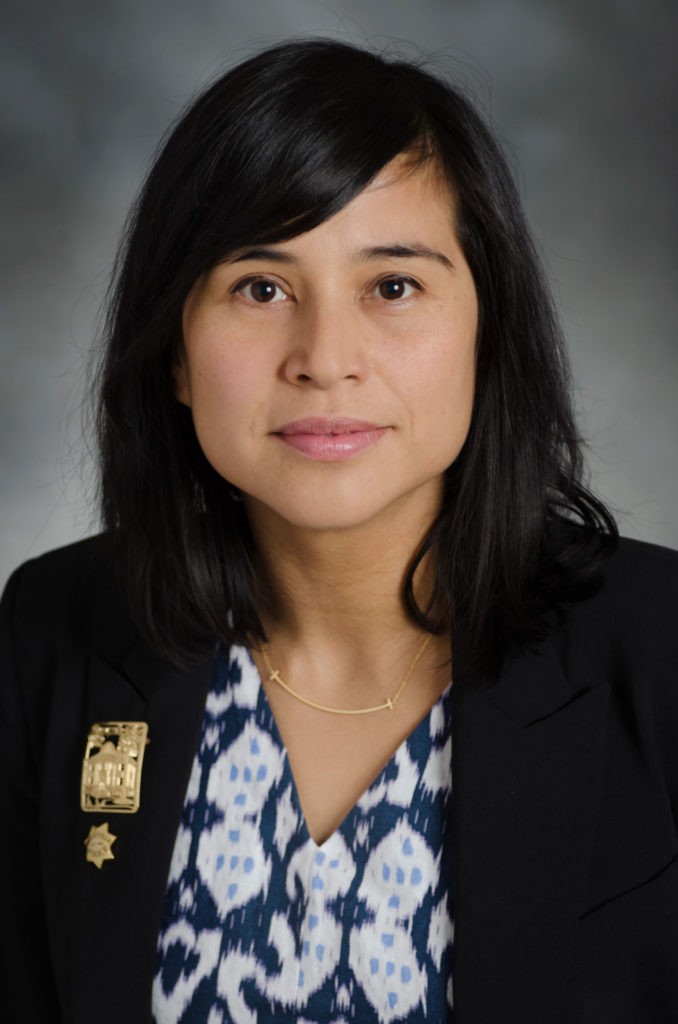
Dianne Martinez – Councilmember, City of Emeryville, CA
Martinez was recently re-elected to the Emeryville City Council, and served as mayor in 2016. She sits on boards of two regional bodies, East Bay Community Energy and StopWaste, which fights solid waste, food waste, and energy waste in Alameda County.
On being a voice for the under-represented: I decided to run for office to give a voice to families with small children in a community where we are under-represented. I am proud to be the first Asian American member of the Emeryville City Council,” City of Emeryville Councilmember Dianne Martinez said. As part of the City Council, she responds to emails, read
On breaking the glass ceiling: I have experienced a lot of support from my fellow elected officials since I’ve been in office, but when I first ran, I encountered some serious sexism. I had men AND women question my ability to do the job on top of a career and raising a family. I think a new glass ceiling is being broken by women elected officials, staffers and lobbyists who are pregnant or new mothers.
On being Filipina and celebrating Fil-Am History Month: Living in the Bay Area, we are blessed to be among so many folks who are activists, staffers, nonprofit workers, artists, historians, chefs, farmers and more. While it is important to recognize the sacrifices of our elders, I see so many young Filipinos who are walking the walk — documenting the food and culture of our forebears, and shedding the colonial mentalities like racism and colorism that have held us back as a people.
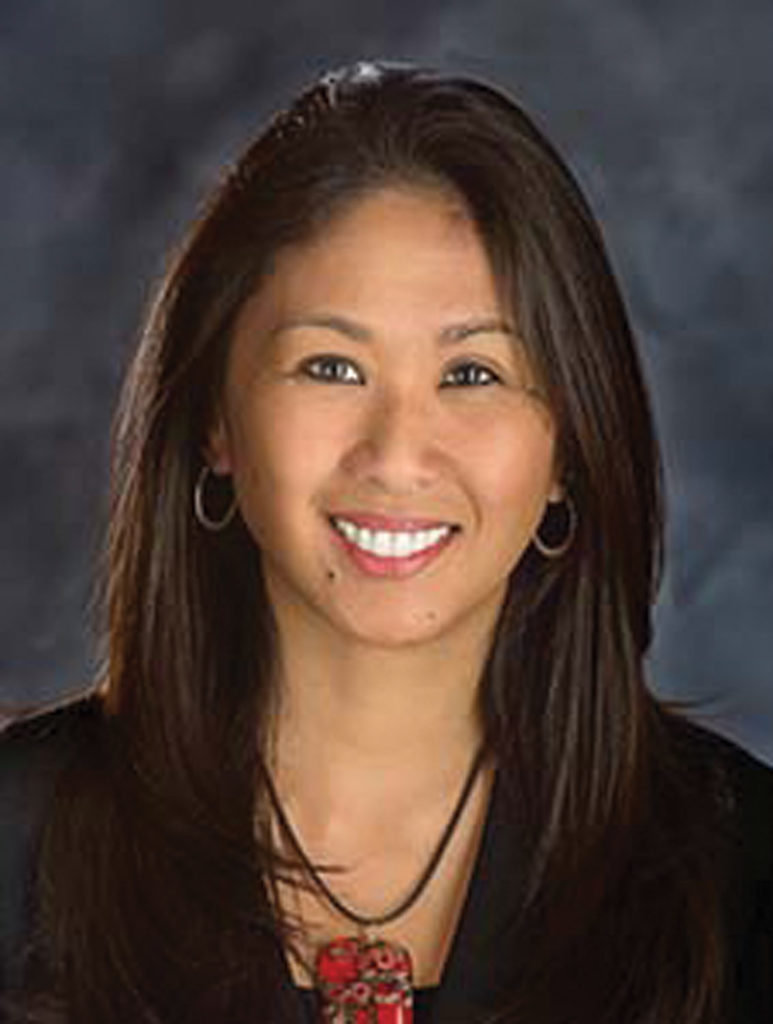
Marico Sayoc, Councilmember, town of Los Gatos, CA
Sayoc first ran for office in 2014 because she wanted to implement sustainability policies she recommended while she was a planning commissioner and fill a gap where she felt she was not represented in their town’s Council. She is also the incoming president of the League of Cities’ Peninsula Division that represents the Counties of Santa Clara, San Mateo and San Francisco.
On civic engagement: I am proud to be the first Filipina American on a City Council in Santa Clara County and hope that my physical presence will encourage more Filipina Americans to run for office or apply for an appointed position in leadership roles. I also believe that more Filipina Americans need to be more involved in their communities and volunteer in official capacities to begin their growth in public roles. My husband and I both work, have school-age children in the local public schools, and I wanted to ensure that our voices were represented in policy considerations.
On recognizing the challenges: The challenges facing women in politics today are similar to the challenges all women in leadership positions face on a regular basis. There is higher scrutiny not only externally from the general public but also on one’s self as women tend to expect more of one’s self before applying or pursuing leadership positions. A large personal challenge for me was and continues to be the privacy of my family.
On being Filipina: Being a Filipina recognizes the many men and women before me whose cultural celebrations created me and my family-oriented and community-centered values and beliefs. My visits to the Philippines taught me early that [it takes] a village raises a child.
Rozzana Verder Aliga, Councilmember, City of Vallejo, CA
A senior manager with Solano County Behavioral Health by day, Vallejo Councilmember Aliga is the first and only Filipina American in elected office in Vallejo and Solano County. Prior to her first election to the council in 2013, Aliga also served several terms on the Vallejo School Board.
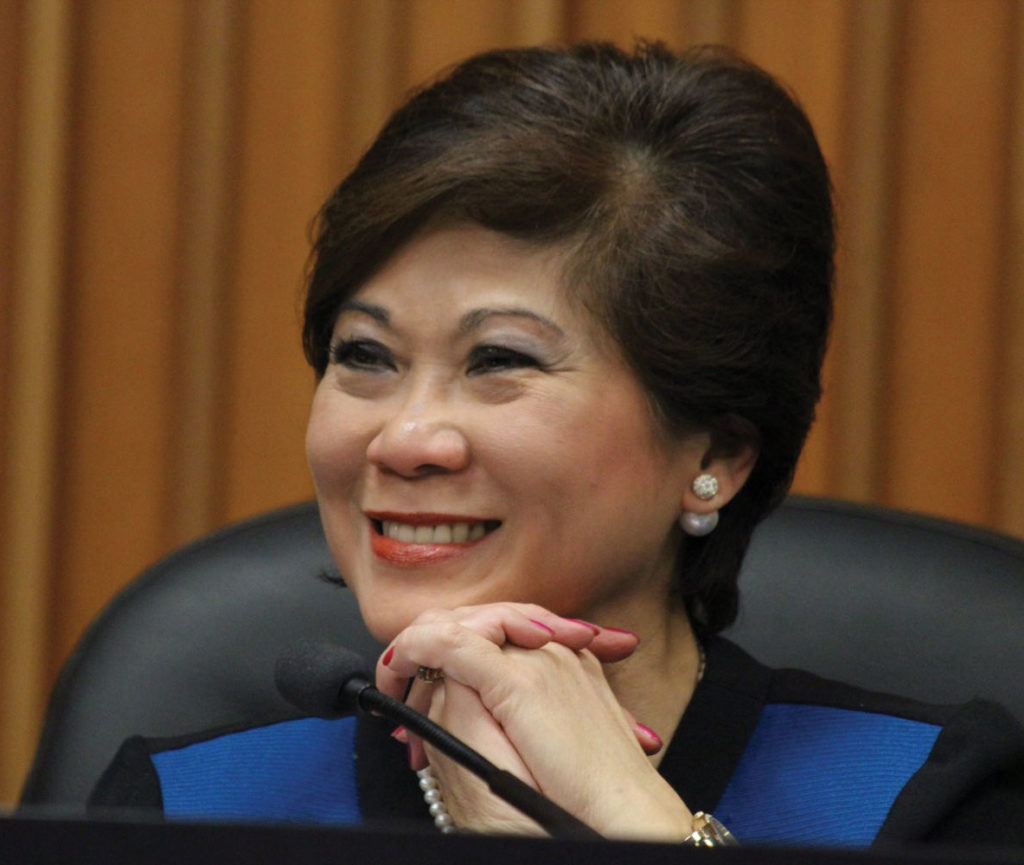
On a passion for public service: I ran for elected office because of my passion for public service and love for serving our community. I also believe that the Filipino American community needs representation and a voice at all levels of government. Decisions made by local governing boards and city councils impact our quality of life. I care deeply about families, elderly and children. It is critical that we participate in the political process and be part of the solution to problems/concerns.
On the multifaceted roles of Filipinas: Women face many challenges in politics today, on a larger scale some of these are gender equality and equity issues; financial issues, caretaker/mother/parent/daughter roles at home; family obligations and lack of career opportunities or options. At present, things have gotten better for women in politics today, so we need to continue on this trajectory to support women and also provide them with the necessary training and mentoring.
On mentorship: We need to be mentors to fellow Filipina Americans. We need to encourage our young Pinays to get involved in leadership positions at all levels, such as their neighborhoods, schools, work, nonprofit organizations. I would like to develop a program or pipeline at the local level (i.e. Emerge, Leadership Vallejo, etc.) to help recruit, train and mentor current and future Pinay leaders.
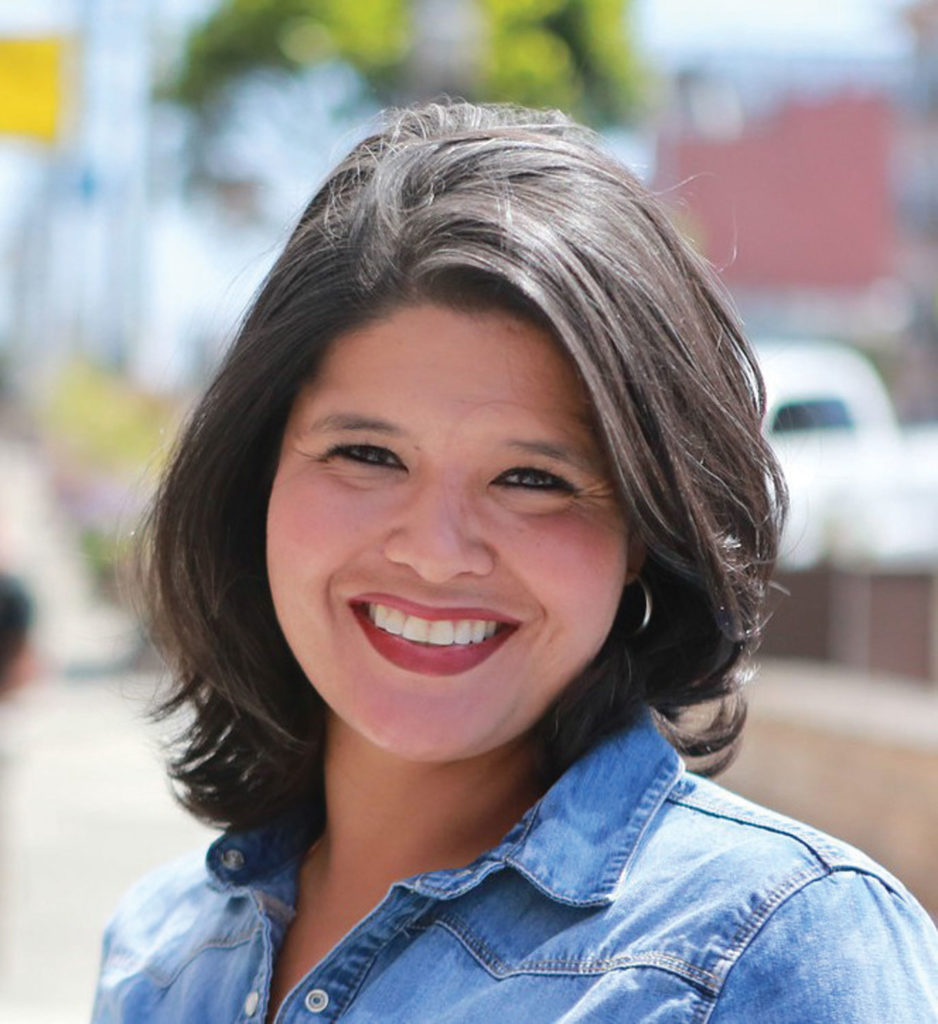
Marjan Philhour – Senior Advisor, Office of San Francisco Mayor London Breed
Philhour was named a senior advisor to Mayor Breed — the city’s first black female mayor of — bringing more than two decades in government, politics, community organizing and political advocacy. Her experiences include working for members of Congress, working Sen. John Kerry’s presidential campaign, and serving as senior advisor to the Chief of Staff in the Governor Gray Davis administration.
On why visibility matters: From an early age, I was lucky to benefit from mentors and community leaders who believed in teaching future generations the importance of public service. Whether it was volunteering at a local food bank in elementary school or at my local congressman’s office in high school, the importance of public and community service was ingrained in me at a young age. I was always taught that ‘you can’t be what you can’t see.’ It’s so important to ensure that Filipino Americans are in public positions to set an example for future generations. Our youth are watching us at all times – how we act, how we lead, how we engage. It’s critical that Filipina Americans have a seat at the table so that our voices are heard and our viewpoints are considered in crafting policy and setting the agenda.
On speaking up: I feel so lucky to grow up in the Bay Area, and to be able to raise my kids here, where our culture is influential and present in our day to day lives. Being Filipina means representing our values and priorities while serving as a leader and voice for our community every day. We add value to the discussion, and we owe it to future generations to elevate our voice. It’s a point of pride and honor to serve as senior advisor to Mayor Breed. Mayor Breed has lived so many of the experiences of our community. She sees our community. Since taking office, Mayor Breed has proactively included our Filipino community at the table. We encourage interested individuals to seek appointments to boards and commissions, and to engage with our office to make positive change within our community.
On structural support: Representation — or lack thereof — is a huge challenge. While we have made tremendous strides over the years, we need to do more to not only encourage more women to run for office but provide the institutional support that reflects the changing structure in our families, and ensure that our public (and political) policies also reflect the various responsibilities women hold personally and professionally. We must be vocal and proud of our accomplishments. It’s important for us to seek leadership roles in our communities and stay in contact on a very local level with our neighbors and families every day. We serve as conduits and connectors and must utilize the resources before us to ensure that we are touting our vision and accomplishments for our community every day.
LAS VEGAS
Cheryl Moss – Judge, Eighth Judicial District Court of Nevada
Cheryl Moss, a family court judge, was first elected to the District Court, Family Division in November 2000 and was re-elected in 2014. In 2001, with the help of the Nevada Council on Problem Gambling, she was the first judge in Nevada to institute problem gambling assessments in child custody and divorce cases. Last year, Moss established the state’s first-ever gambling court, which offers offenders a second chance to get help for their gambling addiction.
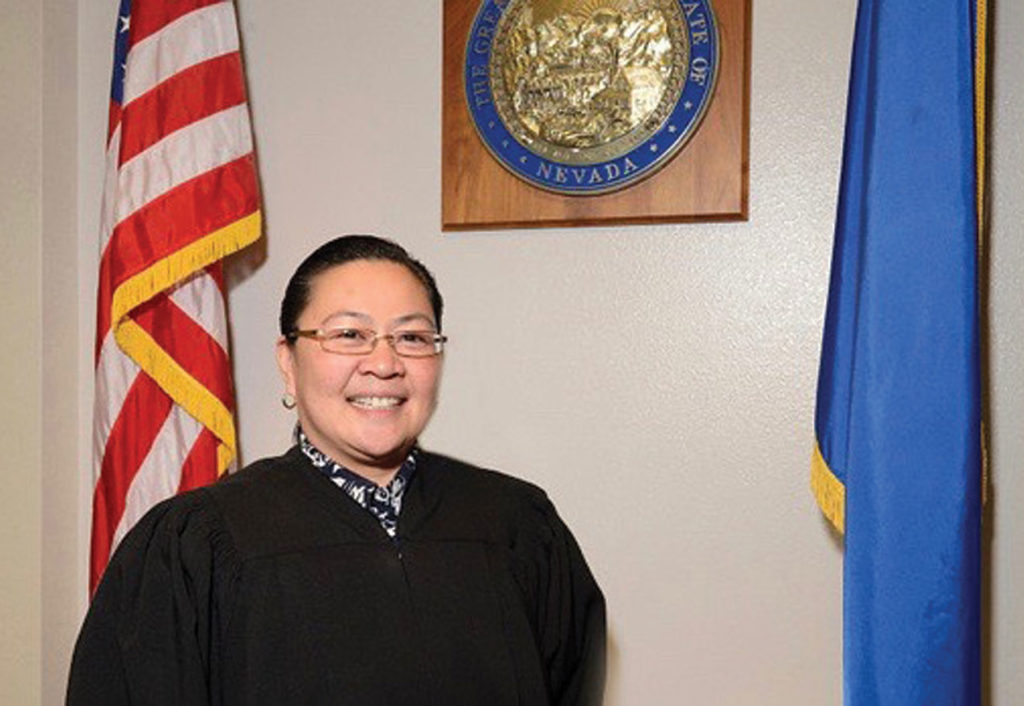
On continuing a legacy of public service: My parents both served over 30 years each in the public sector as physicians in the veterans administration medical center. Public service seems to run in the family. A typical day for me as a district court judge is to hear court cases throughout the day. Sometimes I work through the lunch hour nonstop because of the heavy caseload. After the court session ends, I would spend several more hours into the late night preparing my cases for the next day, responding to court-related emails, and taking at least some free time to relax, breathe, and recover.
On embracing Pinayness: Being Filipina means embracing and being proud of my heritage. My dad spoke Tagalog and my mom spoke Visayan. I was raised in my early years in Kalibo, Aklan and Bacolod City although I was born in the United States. Being elected as the first full-blooded Filipina to the District Court in the state of Nevada’s history has made me proud to represent the Filipino community for nearly the past 20 years.
On engaging Fil-Ams: I have provided externships and internships to Filipino law students and newly-admitted attorneys. I have spoken in the past at community events for Filipino students who are just thinking about their career paths. I also believe that mentorship and hands-on experience in government offices will spark their interest. I have also enjoyed throughout the years attending Fil-Am community events and gala dinners as it gives me the opportunity to stay connected those in Las Vegas. Winning four elections in a row has brought the Filipinos in Las Vegas closer together as a community. It makes all of us feel important and letting the rest of the world know that we can do great things to help others out.
On being a community resource: I have always tried to answer their questions and concerns in my role as a public figure or to point Filipinos in the right direction when they need help. While there are certain limitations in what I can respond to, the fact that I can be a resource of information has given comfort to Pinoys who need assistance in navigating the legal system. They feel like they have representation with someone who is from their community and who understands their needs. We should continue to collaborate to increase interest among our youth about public office. They are our future!
Other Filipina Americans in office
The Asian Journal reached out to other Filipina Americans elected/appointed officials in California, but due to time constraints, busy schedules and pending deadlines, they were unable to accommodate our requests for an interview for this feature. We do, however, want to recognize them for their achievements and the work they continue to do:
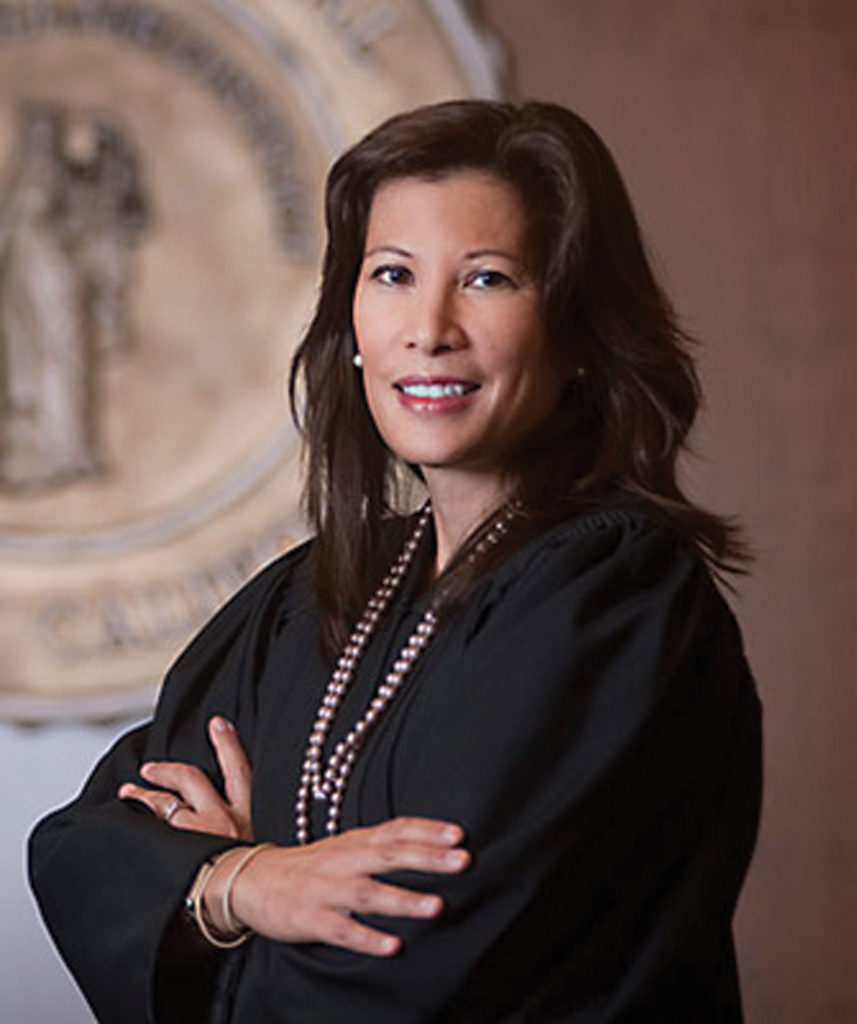
• Tani Cantil-Sakauye, Chief Justice of California - The first Fil-Am and the second woman to serve as California’s chief justice, Cantil-Sakauye was nominated in 2010 by then California Governor Arnold Schwarzenegger for the state’s highest judicial office and was retained in office by voters in 2010.
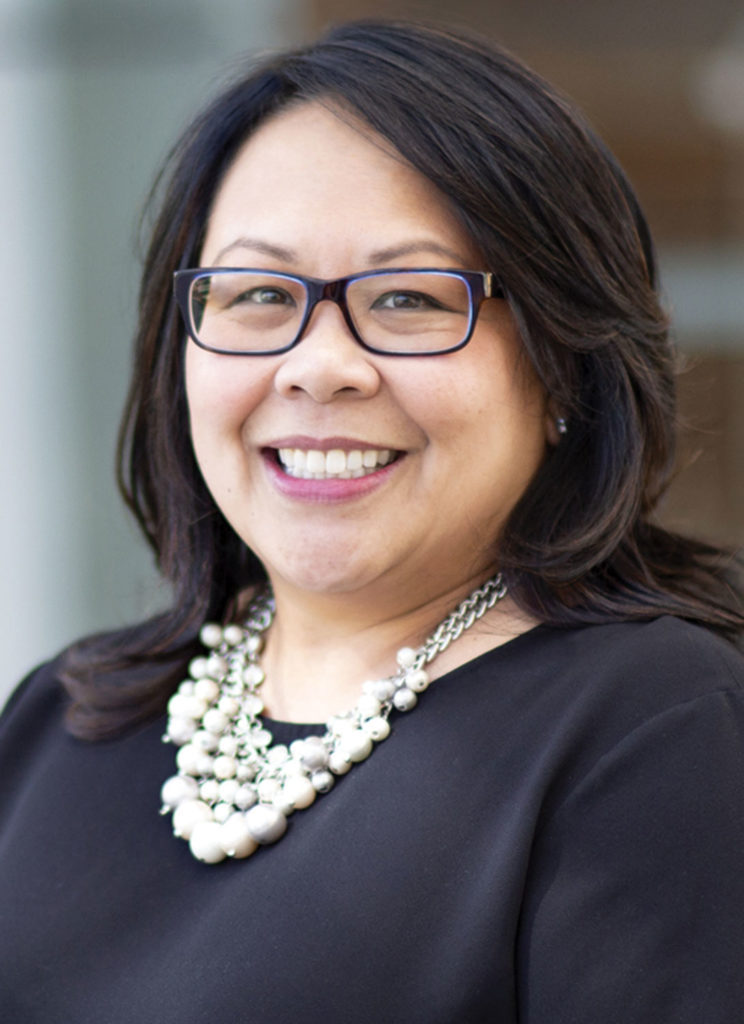
• Mona Pasquil-Rogers – In 2009, Schwarzenegger appointed Pasquil-Rogers as acting lieutenant governor, making her California’s first Asian and first Filipino/a to hold the position. At present, Pasquil-Rogers is Senior Advisor with Governor Gavin Newsom’s Office of Emergency Services.
• Nikki Fortunato Bas, Councilmember, District 2 City of Oakland, CA – Prior to being elected to City Council, Bas was the executive director of the East Bay Alliance for a Sustainable Economy (EBASE), a non-profit that helps with economic and discrepancies of low-income families. She is also the first Fil-Am to be elected to a public post in the City of Oakland.
• Pat Gacoscos, Councilmember, Union City, CA - Gacoscos was first elected to the Union City Council in 2010, and was re-elected in 2014. Gacoscos was also Vice Mayor in 2012 and 2017. Previously, she held two elective positions: a Trustee for the New Haven Unified School District; and the Director for the Union Sanitary District.
• Joanne F. del Rosario, Mayor, City of Colma, CA – Del Rosario was first elected to Colma City Council in 2006 and also served as mayor in 2015. She was also the past president of the Filipino American Association of Colma and past director of the Filipino American Coalition.
• Diana Colvin, Councilmember, City of Colma – Colvin was appointed to Colma City Council in 2008 for a term of seven months to fill a vacancy and then was elected into the position November of that same year. She also was selected to serve as Mayor in 2010.
• Malia Vella, Councilmember, City of Alameda – A labor and employment law attorney, Vella was also an adjunct professor at Mills College Lorry I. Lokey School of Business and Public Policy.
• Buenaflor Nicolas, Councilmember, City of South San Francisco, CA – Born in the Philippines and immigrated with her family in 1988, Nicolas is the third Asian American woman elected to the South San Francisco City Council and only the fourth woman to serve in that capacity.
• Tzeitel Paras-Caracci, Mayor, City of Duarte, CA – Representing Duarte’s District No. 1, Paras-Caracci was first elected at-large in November 2001. In the historic 2018 district-elections, she was elected to serve a four-year term representing District 1. As a public servant, Tzeitel has previously served as mayor in 2006, 2011 and 2015.
• Letty Lopez-Viado, Councilmember, West Covina, CA – Letty Lopez-Viado is the first Mexican-Filipina American ever to be elected as a councilwoman for the city. She served as a West Covina Community and Senior Services Commissioner beginning in 2013 until November 2018, when she was elected to the city council.
[This list includes up to the city council level only. There are many Filipina Americans serving as trustees/board members in school districts and in city commissions. Interviews have been condensed and lightly edited for clarity.]









Dolores Sibonga, the first Filipino attorney in Washington State in 1973, served three terms as a Seattle City Councilmember. She was initially appointed to the Council in 1978 to complete a term of a resigning Councilmember. She was first elected in 1980 and chaired several committees including Parks, Personnel and Property Management and Budget among others. She was also formerly a member of the State Human Rights Commission serving from 2000-2005 . Her signatory legislative piece while serving on the City Council was the Affirmative Action Ordinance passed in her first term.
Velma Veloria was the first Asian American woman and first Filipina American elected to the Washington State legislature. She represented the 11th District from 1992 until 2004. She worked to pass HB 1175, criminalizing human trafficking on the state level; worked o international trade policies benefiting both the Philippines and Washington State; and authorized legislation creating a Joint Legislative Oversight on Trade Policy.